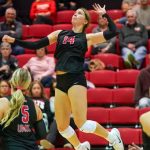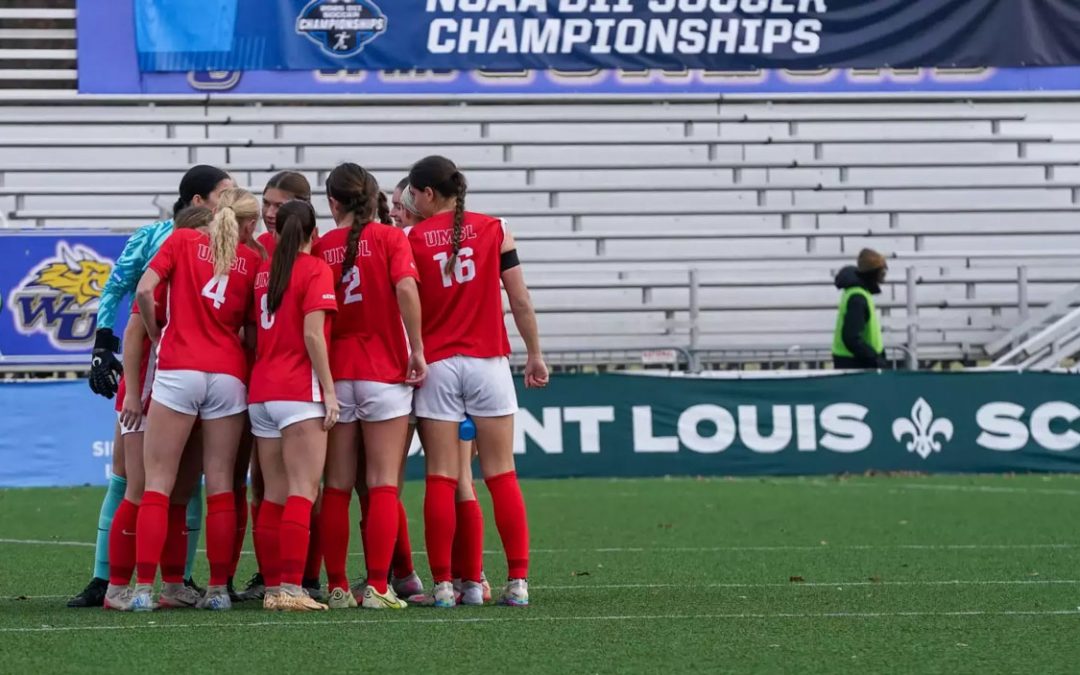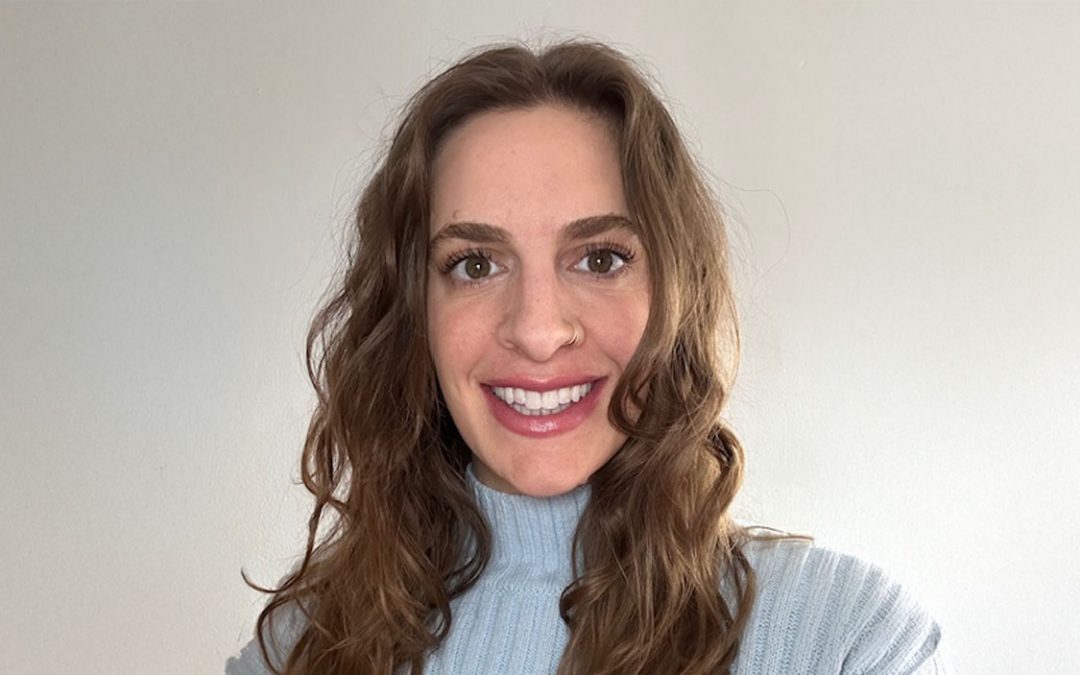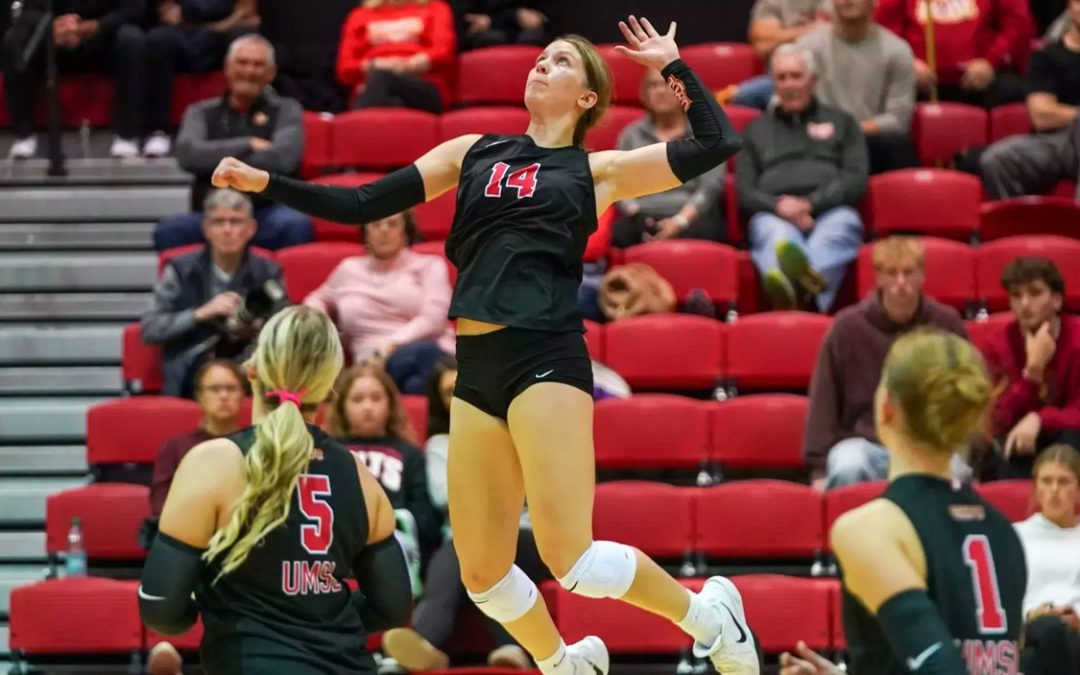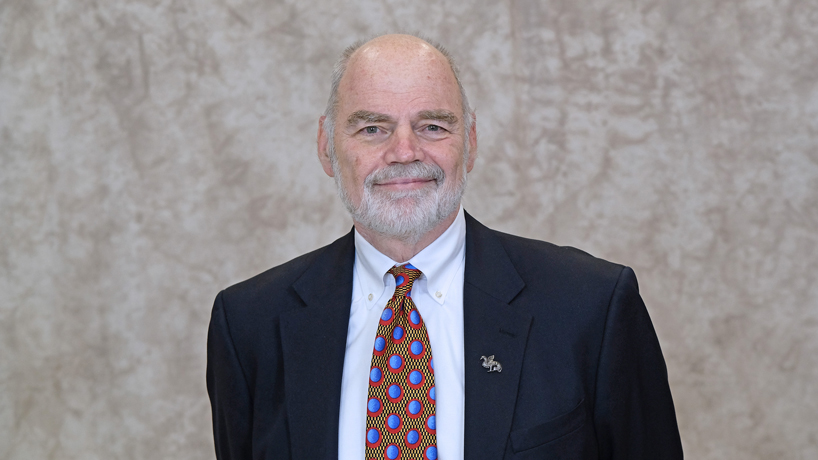
Tom Hoerr, scholar in residence in the UMSL College of Education, examines the role empathy plays in the success of a school leader in “The Principal as Chief Empathy Officer: Creating a Culture Where Everyone Grows.” Over the course of 10 chapters, Hoerr makes the case that an intentional focus on empathy can help reduce conflicts, foster a more cohesive school and lead to improved student achievement. (Photo by August Jennewein)
Tom Hoerr, scholar in residence in the University of Missouri–St. Louis College of Education, has been working on his latest book for quite some time.
“Well, the real answer is I’ve been working on the book all of my life,” Hoerr said. “It’s a book that speaks to interacting with other people.”
Published in February by ASCD, “The Principal as Chief Empathy Officer: Creating a Culture Where Everyone Grows” examines the role empathy plays in the success of a school leader.
Over the course of 10 chapters, Hoerr, former head of the New City School in St. Louis who holds a PhD in educational planning and policy development from Washington University in St. Louis, makes the case that an intentional focus on empathy can help reduce conflicts, foster a more cohesive school and lead to improved student achievement.
Though Hoerr jokes he’s been working on the book his whole life, he said he really began developing the idea for it in 2017 while working on a previous book, “The Formative Five: Fostering Grit, Empathy and Other Success Skills Every Student Needs.”
That book tackles the subject of social emotional learning, including principles such as empathy, self-control, integrity, embracing diversity and grit. The book was well received, but Hoerr found that discussions of it were disproportionately focused on grit.
It got him thinking about the other principles in “The Formative Five.”
“I kept thinking about leadership,” he said. “I led schools for 37 years, and I kept thinking about, ‘What does this mean?’ In this book – a result of a good three years of a very specific focused effort – what I tried to do was ask, ‘What role does empathy have in leadership?’”
Hoerr’s work on “The Principal as Chief Empathy Officer” aligned well with a shift in conversation about grit. In the past few years, Hoerr said there has been more interest in promoting empathy inside and outside of schools. He speculated that the change has come with a greater recognition that common understanding seems to be waning in the public sphere.
“I think in our country today, and if you look around the world, what we really need is more empathy,” Hoerr said. “We’ve become very polarized. Too often, people live and work in their bubble. They only associate or work with people who are like them and share their views. There’s a lack of dialogue.”
The COVID-19 pandemic exacerbated those tendencies, especially early on when safety precautions limited who people were interacting with on a daily basis. Hoerr also pointed to political polarization in the U.S. and abroad.
But in his view, it doesn’t have to persist.
“We can disagree without being disagreeable,” Hoerr said. “If you have empathy, I think you work not only to understand other people’s positions but to appreciate why they feel the way they do. That doesn’t necessarily mean you agree with them, but it means that you better understand them and can work with them.”
In the book, Hoerr explains that placing a priority on understanding and listening has very real, practical benefits for administrators, as well as teachers. One of the most salient benefits is reducing conflict. By leading with empathy and promoting open discourse, educators can nip disputes in the bud before they escalate or avoid them completely.
Empathy also fosters teamwork, which is essential for any effective organization, including schools. Hoerr said leaders who work closely with their team members and value their input can ensure that everyone is working toward the same goals.
Most importantly, this approach can lead to student success. Hoerr noted that when school leaders emphasize empathy it becomes part of the school culture for teachers, who then approach their students with that mindset.
“Good schools are schools where kids come in and they feel empowered and they know they can achieve,” he said. “Part of that is because their teacher understands them.”
Hoerr knows that not everyone is a natural empath, but it is something anyone can work toward. He explained that school leaders can take the first step by being intentional and letting teachers and students know empathy is valued.
As counterintuitive as it sounds, another thing school leaders can do is work at not looking busy for part of every school day. Hoerr said people in these positions are busy, often too busy, and people are reticent to think they might bother them. However, setting aside time to listen is crucial.
“One of the things I did back at New City School is several times a year I would have breakfast with Tom for the faculty,” he said. “I’d say, ‘I’ll provide the doughnuts; you provide the agenda.’”
Through these meetings, Hoerr learned what was important to teachers based on what questions they asked. More recently, while teaching at UMSL during the pandemic, he instituted 20-minute “empathy conversations” via Zoom with each student in his class. In “The Principal as Chief Empathy Officer,” he advocates for principals holding these conversations with each member of their staff.
For some, this is a departure from how things have traditionally been done, but being a leader is about more than making decisions.
“Leadership is about relationships,” Hoerr said. “What this really means is if you’re in a leadership role, if you’re a principal, you need to lead by having and building relationships, not by simply saying, ‘This is a way to do it. I’m in charge.’”
Hoerr has been presenting the book at speaking engagements, and thus far, responses have been positive.
“I hope that my content is good,” he said. “What I know, though, is that people are yearning for empathy. We’re feeling less and less together. The pandemic doesn’t help. You turn on the news, you read the newspaper, and too often there are people who are focusing on what’s different about us, rather than what we share.
“In a school what we share is a desire for kids to excel. I think the more we know one another, appreciate one another, the more we can collaborate effectively, the bottom line is kids do better.”





